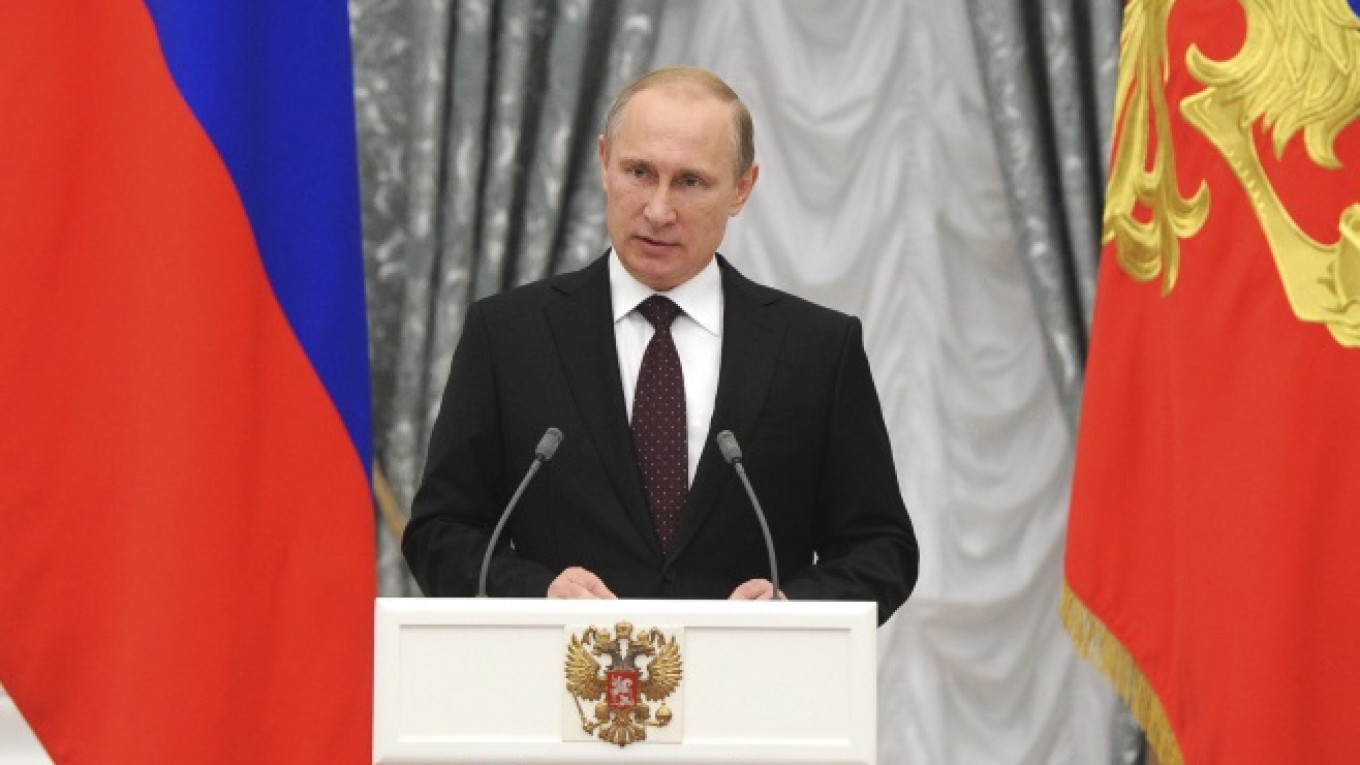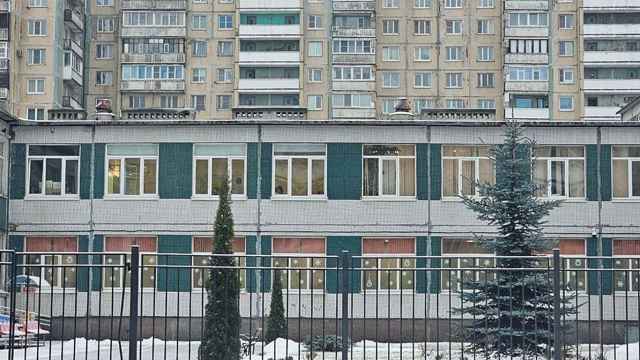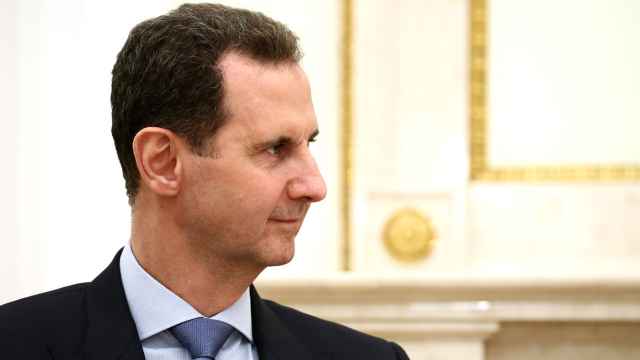Russia's new tax on sales, backed by President Vladimir Putin, illustrates growing economic strains from Western sanctions over Ukraine — and the lack of easy solutions.
Under the tax plan, regional governments will have the option from next year to introduce a 3 percent tax on sales to cover their budget shortfalls.
Analysts say such hikes will boost already stubbornly high inflation, increase the burden on business and add to the restraints on economic growth. Yet Russia needs to plug the tax holes left by a slowing economy.
Economists polled by Reuters project that Russia's economy will grow by a feeble 0.3 percent this year.
If Russia introduces the sales tax, "business sentiment will remain depressed and will probably decline further — which is clearly not the best recipe for a recovery in investment," said Vladimir Kolychev, chief economist at VTB Capital in Moscow.
"Secondly, [the tax] will certainly put a dent in consumer budgets and will continue to restrain consumption into next year via higher inflation," he said.
Serious Shortfall
The planned tax, which will be on top of an existing 18 percent value added tax (VAT) levied by the federal government, is a response to a serious shortfall in regional tax revenues that is now being exacerbated by the economic slowdown.
"The goal of this [sales] tax is to make regional budgets more balanced — at least to help them narrow the budget deficit," said Vladimir Redkin, senior director at Fitch Ratings CIS. "In 2013 the deficit increased significantly and this trend is continuing in 2014."
The Finance Ministry projects that in 2014 regional governments will run a combined deficit of some 857 billion rubles ($24 billion), some 1.2 percent of gross domestic product (GDP) — a figure that has grown steadily from just 35 billion rubles ($980 million) in 2011.
The trend illustrates how the seemingly healthy federal budget, projected to run a 0.4 percent surplus this year, masks deep structural problems with overall government finances.
Whereas the federal government raises around half of its tax revenues from oil and gas, an income source that depends on global energy prices, regional governments are more dependent on local taxes and hence on the state of Russia's own economy.
Fitch's Redkin said that regional deficits have grown as a result of Putin's policy of boosting public sector pay. The problem has lately been exacerbated by stagnant proceeds from corporate income tax, the regions' main revenue source, as the slowing economy bites into businesses' profits.
The Finance Ministry projects that the new sales tax will raise around 200 billion rubles ($5.6 billion) in additional revenues each year — providing only a partial solution to the problem of growing regional budget deficits.
Yet the tax could boost inflation by as much as 2.1 percentage points, and lop 0.5 percent off gross domestic product, analysts at Russia's Sberbank estimate.
Calculating the exact impact is complicated by uncertainty over how many regions would introduce the new tax, and which products would be taxed.
"If we take a conservative view we can come up with an estimate of 0.7-0.8 [percentage points] contribution to the headline CPI," said VTB Capital's Kolychev. "If we make more aggressive assumptions, then it might be as high as 2 percentage points or even higher. That will complicate matters for the Central Bank quite significantly."
The Central Bank has already pushed its main lending rate to 8 percent.
Embarrassingly, it missed its inflation target last year and is set to do so again this year, leading it to place its main emphasis on meeting its medium-term inflation goal of 4 percent by the end of 2016, with 4.5 percent targeted in 2015.
That is already a tough challenge, given that inflation is presently running at around 7.5 percent, far in excess of this year's 5 percent inflation target, implying that interest rates will stay high and could even be hiked further.
VTB's Kolychev questions why Russia is planning to introduce the new tax next year, arguing that subsidies from the federal budget, which is enjoying a revenue windfall from the ruble's recent devaluation, are a better short-term solution to overstretched regional budgets.
But he and other analysts say Russia has little alternative to raising taxes or cutting expenditures within the next few years, given the underlying deterioration in public finances linked to the stagnating economy.
"It's true that [federal subsidies] are one way out — but the problem is not only for regional budgets," said Fitch's Redkin. "The federal budget is also faced with a situation where revenues have stagnated."
See also:
Sanctions or No, Price of Oil Spells Future of Russia's Economy
Bill Proposes 30% Income Tax on Russia's Rich to Fund Crimea
A Message from The Moscow Times:
Dear readers,
We are facing unprecedented challenges. Russia's Prosecutor General's Office has designated The Moscow Times as an "undesirable" organization, criminalizing our work and putting our staff at risk of prosecution. This follows our earlier unjust labeling as a "foreign agent."
These actions are direct attempts to silence independent journalism in Russia. The authorities claim our work "discredits the decisions of the Russian leadership." We see things differently: we strive to provide accurate, unbiased reporting on Russia.
We, the journalists of The Moscow Times, refuse to be silenced. But to continue our work, we need your help.
Your support, no matter how small, makes a world of difference. If you can, please support us monthly starting from just $2. It's quick to set up, and every contribution makes a significant impact.
By supporting The Moscow Times, you're defending open, independent journalism in the face of repression. Thank you for standing with us.
Remind me later.






